Surroundings
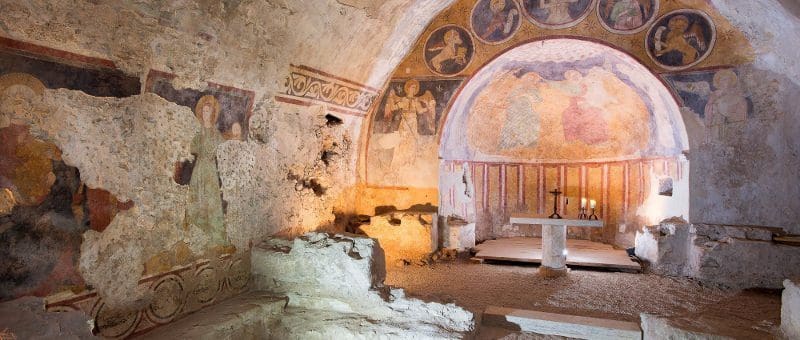
Narni underground
A guided tour in the basement of Narni that starts from the convent of S. Domenico, with the entry into a twelfth-century church, which contains frescoes of the oldest in the city.
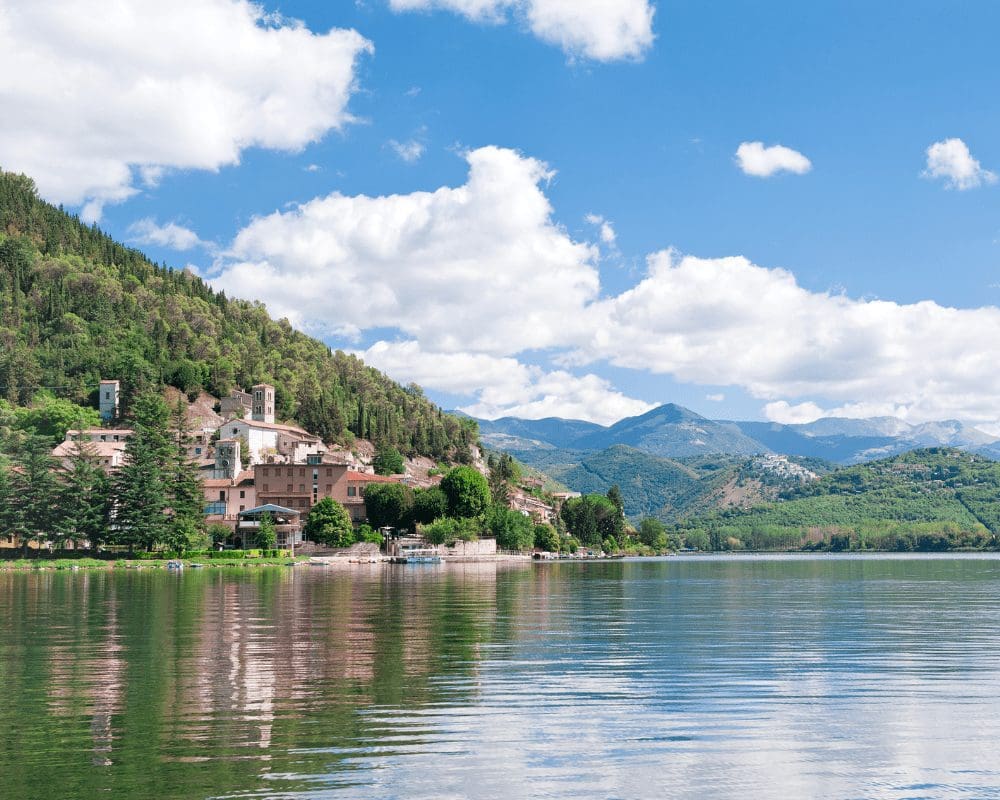
Piediluco lake
Small town of medieval origin means “at the foot of the sacred wood” that developed his village in the narrow strip of land that runs between the lake and the mountain.
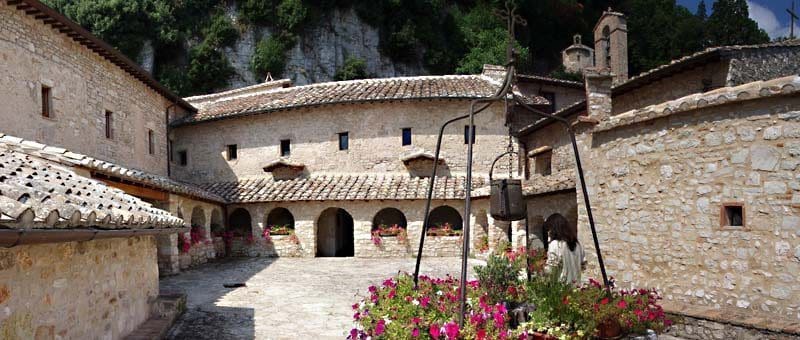
Speco di San Francesco
The Speco of St. Francis is one of the most important shrines of the Franciscan, located near Narni built near the caves where the saint of Assisi used to retire to prayer, it is the destination of many pilgrimages.
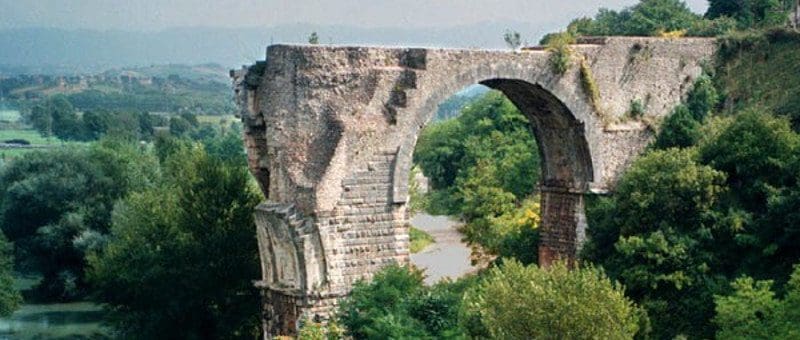
Ponte di Augusto
Monumental work that allowed the Via Flaminia crossing the Black River, built in all probability during the seventh consulate of Augustus (27 BC) when, for military reasons, it became urgent restoration of the old street
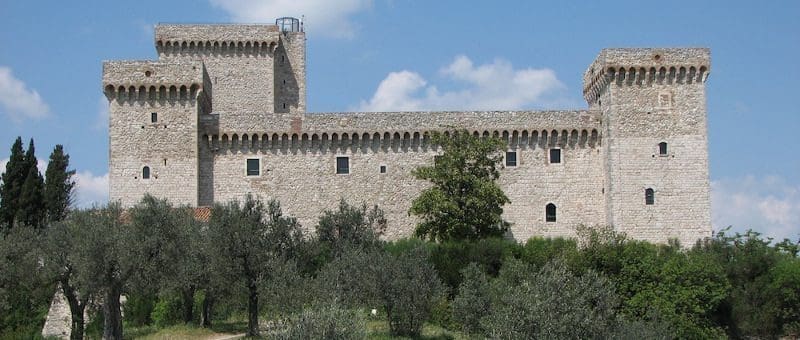
Rocca Albornoz
The Rocca di Albornoz stands in a commanding position over the town of Narni and the Nera River gorges. It is an imposing building that is part of the system of fortresses that the Papacy, after Avignon, established to defend the newly reconquered Papal States.
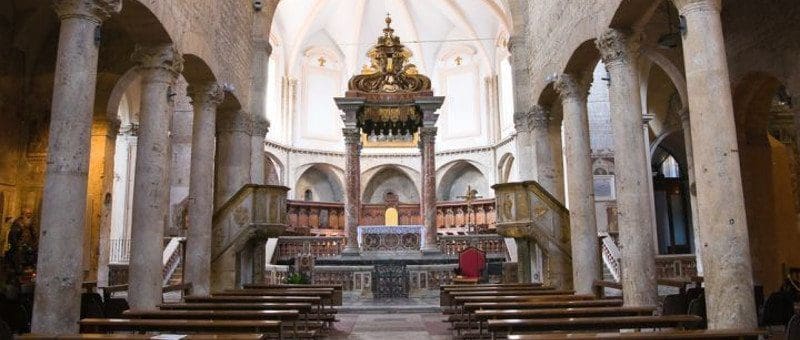
The cathedral
The Cathedral of St. Juvenal of Narni, is located near the walls; presents the left side of the facade on Piazza Garibaldi and Piazza Cavour.
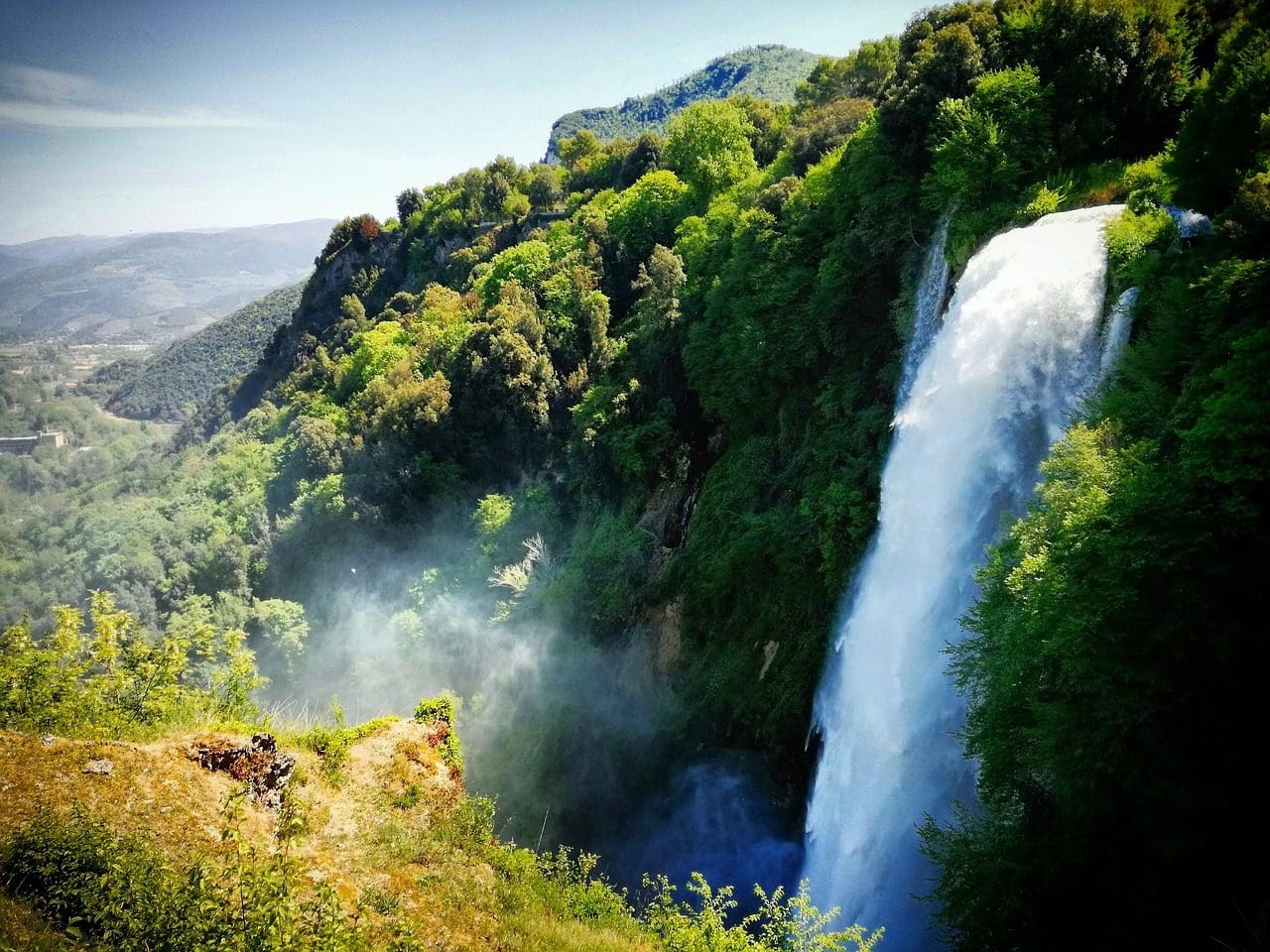
Marmore falls
The Marmore Falls , for its beauty, looks like a roaring column of water on three jumps. Wrapping the flora in a cloud of white foam, 165 meters high.
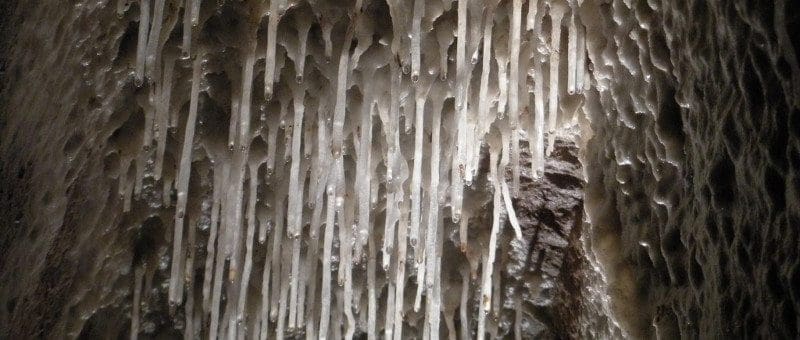
Acquedotto della formina
The Roman aqueduct,13 kilometers long, is the only Roman aqueduct opened to the public in Italy and offers a fascinating underground route.
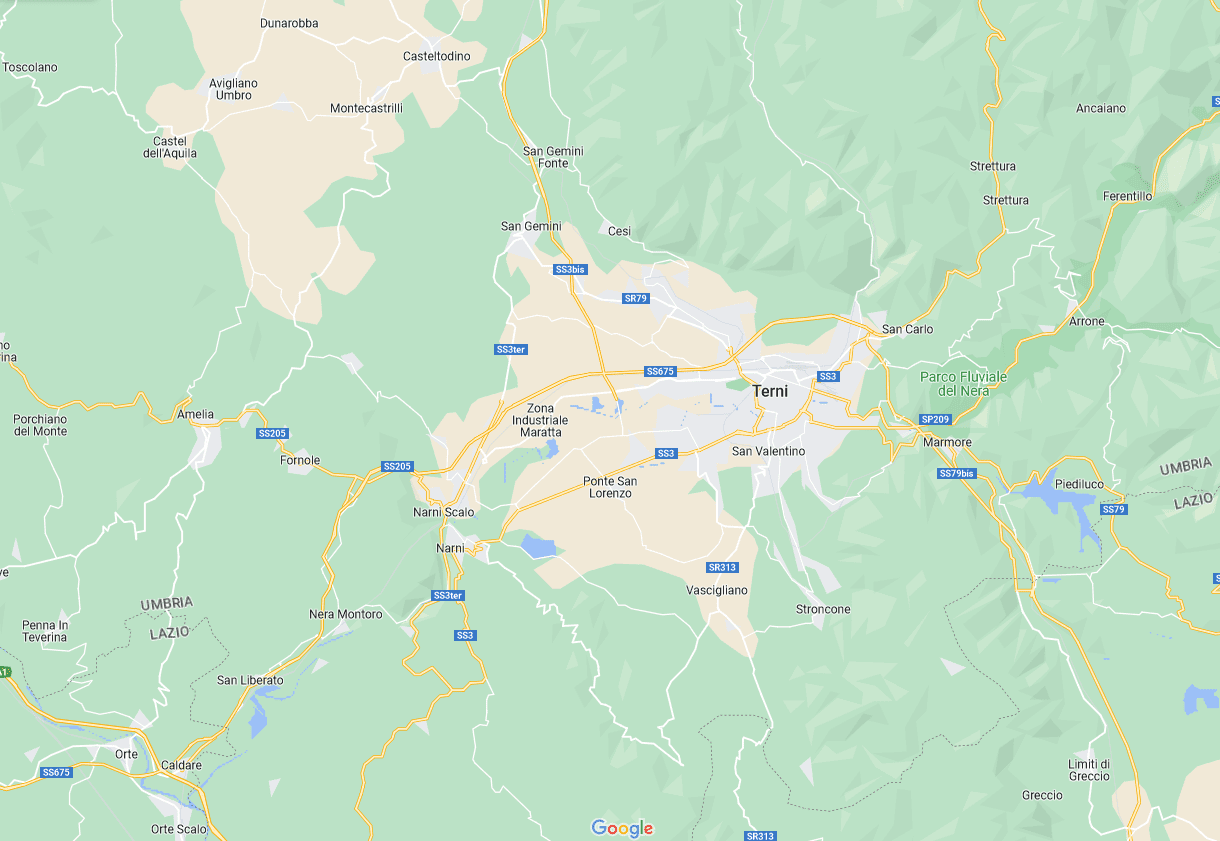
Narni Underground
A guided tour in the basement of Narni that starts from the convent of S. Domenico, with the entry into a twelfth-century church, which contains frescoes of the oldest in the city. Continuing through the corridors you reach a large room, where the interrogations took place in the Court of the Inquisition: the torture chamber. A small adjacent cell, unique in its kind, documenting graffiti on the walls of the suffering endured by the investigated … A romantic, magical, exciting, fascinating atmosphere. The tour includes a tour guide.
Piediluco lake
Small town of medieval origin means “at the foot of the sacred wood” that developed his village in the narrow strip of land that runs between the lake and the mountain.
The lake takes its name from the village, has the appearance of a body of water surrounded by alpine forests.
Speco di San Francesco
The Speco of St. Francis is one of the most important shrines of the Franciscan, located near Narni built near the caves where the saint of Assisi used to retire to prayer, it is the destination of many pilgrimages.
St. Francis arrived there in 1213, often in prayer and also in-patient disease. E ‘can also visit the cell where he was being treated. Famous place of prayer for all the Franciscan and Benedictine order. The literature tells some miracles that happened in this place.
The bridge of August
Monumental work that allowed the Via Flaminia crossing the Black River, built in all probability during the seventh consulate of Augustus (27 BC) when, for military reasons, it became urgent restoration of the old street. The daring building, located between the slopes of Monte Maggiore, on which rises Narni, was praised already by ancient authors and depicted by artists and travelers and is one of the most significant creations of Roman architecture and engineering. Of bridge will retain in full the two arches of the head and the remains of two stacks of the central arches, while the collapse of the third pylon is still visible in the river bed. The work was built on the western branch of the Via Flaminia, considered the oldest, which branched off at the altitude of Narni and headed for Carsulae and Bevagna. On this route you can take a trip to the discovery of other bridges, all restored by the emperor Augustus, who testify to the role played by the Via Flaminia in Narni.
Rocca di Albornoz
The Rocca di Albornoz stands in a commanding position over the town of Narni and the Nera River gorges. It is an imposing building that is part of the system of fortresses that the Papacy, after Avignon, established to defend the newly reconquered Papal States. Its location, crowning the city, and its architectural features demonstrate the desire for control over the territory traversed by the communication routes to Perugia, Terni, and Amelia. A visit is recommended to enjoy the splendid panorama of the surrounding area, as well as to explore its museum spaces and multimedia center.
The cathedral
The Cathedral of St. Juvenal of Narni, is located near the walls; presents the left side of the facade on Piazza Garibaldi and Piazza Cavour.
It is one of the most important examples of Romanesque church in Umbria. Of great interest are the lateral façade decorated with rich carved portal and within the saccello of St Juvenal and Cassius with marble facing made with materials taken from the Roman era. In honor of St. Juvenal May 3 takes place in the Narni Ring Race. The day before the race a procession of more than 600 people in costume goes to the Cathedral to pay homage to the tomb of the Saint.
Marmore falls
The Marmore Falls , for its beauty, looks like a roaring column of water on three jumps. Wrapping the flora in a cloud of white foam, 165 meters high. The scenario revealed to the visitor is the result of over two thousand years of work from the man who, starting from Roman times, attempted to channel the waters of the river Velino to make them fall into the Nera river.
Acquedotto della Formina
The Roman aqueduct,13 kilometers long, is the only Roman aqueduct opened to the public in Italy and offers a fascinating underground route.
It ‘an extensive network of tunnels and corridors, made in Roman times, in order to provide constant water supply to the town of Narni. Powered by six springs extends for 13 Km from St. Urban, passing through the old town and culminating in the large distribution tank.It ‘also considered the geographical center of the peninsula.
